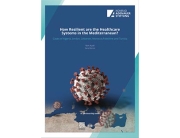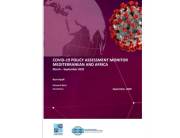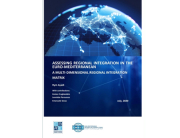Author(s): Rym Ayadi
In: Financial Markets, CEPS Paperbacks
Date: 13 December 2013
Pages: 262
The global financial crisis, which started in the summer of 2007 and deepened in the aftermath of the Lehman failure in September 2008, has led to a virtual collapse in economic activity and increased financial volatility worldwide. For the developing countries, the main channel of transmission has been a drop in external transactions, such as trade, financial and capital flows, and remittances. The emerging economies in the southern and eastern Mediterranean have also faced declining economic activity, although there seems to be considerable variation in the relative magnitude and timing. Most of these economies have shown a delayed but more lasting response to the crisis, driven mostly by their close trade and investment ties with the EU and the Gulf Cooperation Council (GCC) countries. This book explores the fiscal, monetary and financial effects of the crisis in the region and provides an in-depth analysis of the fiscal, monetary and banking policies in the post-crisis era, the viability of their exit strategies and the future of reforms in the region. These analyses not only provide a comprehensive comparison between the countries but also provide a solid basis for assessing future economic and financial developments and reforms in the region.
The book is edited by Rym Ayadi, Senior Research Fellow and Head of the Financial Institutions and Prudential Policy Research Unit at CEPS. Other contributors include Willem Pieter De Groen and Emrah Arbak, researchers in the Financial Institutions and Prudential Policy research unit at CEPS, Prof. Sami Mouley, Professor of International Finance at the University of Tunis, and Damyana Bakardzhieva and Bassem Kamar, Professors at the International University of Monaco.





